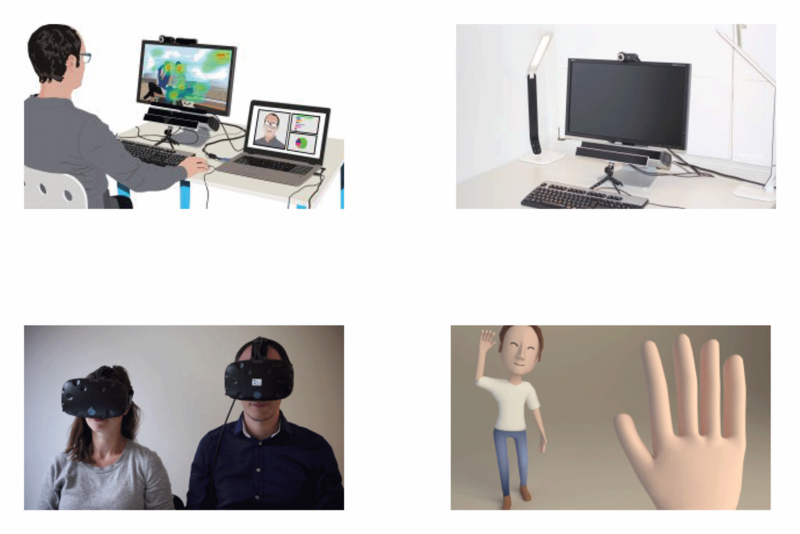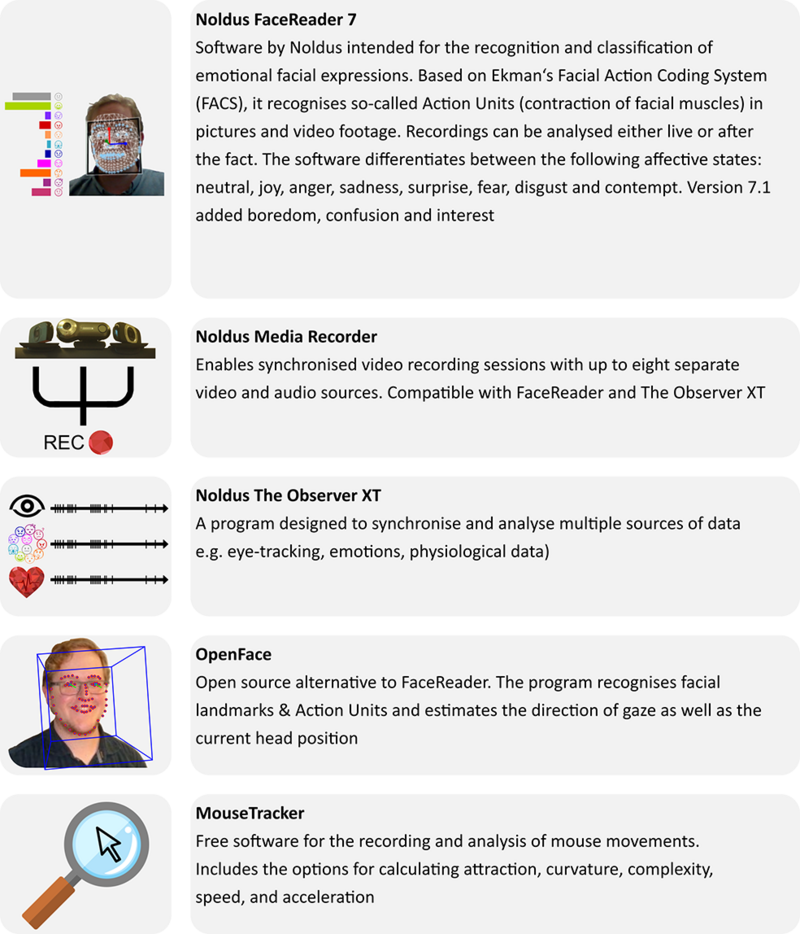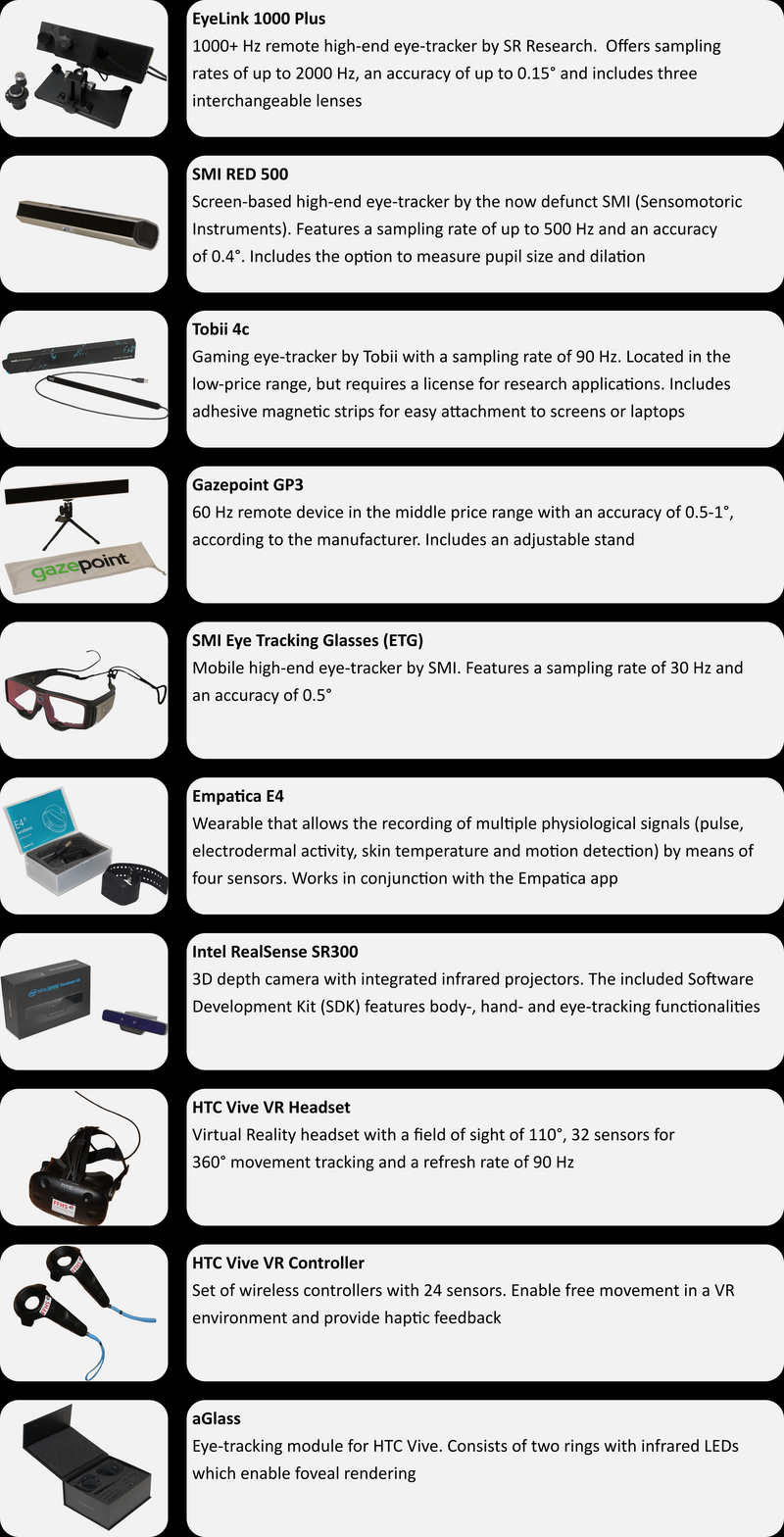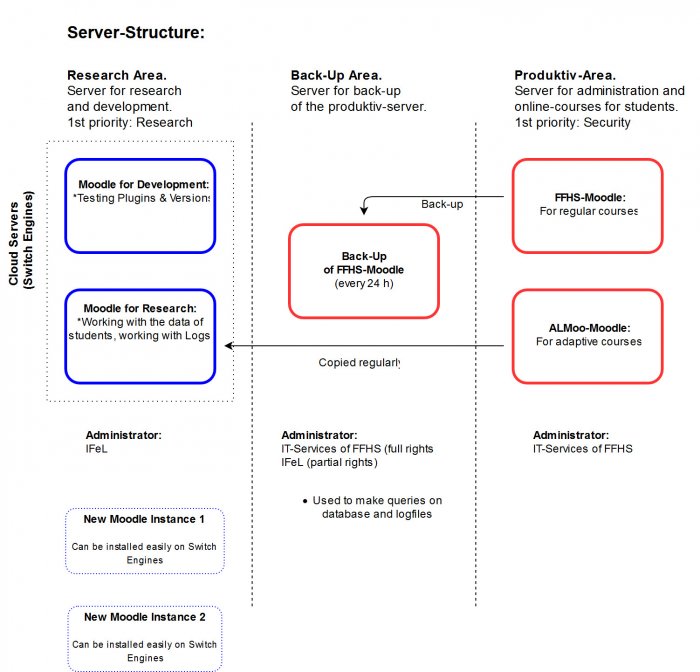IFeL Laboratory for Technology-Based Learning (TBL Laboratory)
In our TBL laboratory, we primarily conduct experiments with virtual reality (VR) equipment and eye-tracking devices. We also work with psychophysiological measuring devices and specialised software for behavioural observation. The various laboratory rooms are equipped in such a way that we can flexibly rearrange them as needed for the respective experiments.
Our devices allow for the designing and implementation of virtual (learning) environments in which one or several individuals can work on a single task. We investigate the potential of VR in distance learning. Eye trackers allow us to determine where and how long learners look at instructional material – mostly on screens – measuring aspects such as attention, cognitive load and other cognitive-affective states. Similar to eye tracking, mouse tracking gives us the opportunity to investigate cognitive and emotional states related to learning, such as confidence, attention, curiosity, interest, frustration, boredom and confusion.
Combining various measuring devices and software allows us to transfer procedures with highly sensitive measuring devices from the laboratory (e.g., eye tracking) to everyday learning (e.g., by means of log files or mouse tracking). In this way, we can improve learning material and design adaptive courses that consider the individual needs of students and lecturers without disrupting learning processes.

Abb.1/2: Installation für Eye Tracking and emotion detection.
Abb.3/4: Virtual Reality headsets and virtual learning environment.
Laboratory equipment
Cloud Servers for R&D
IFEL Team have 2 cloud servers on Switch Engine that are used for research and development purposes:
- Moodle for Development Server is being used to test new plugins and versions of Moodle to understand new functions and tools available, and how they can be integrated into the adaptive learning research.
- Moodle for Research Server is used to analyze log files from productive servers. Student data and logs can be examined to understand student behavior and efficiency of the tools.



